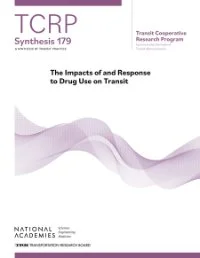by Marina Duane, Jennifer Yahner, Erica Henderson, Malore Dusenbery, and Natalie Gilbert
At the height of the COVID-19 pandemic, in a community with high rates of opioid addiction, a jail in one county in rural Massachusetts showed that treating addiction for people cycling in and out of incarceration can be done better (Partners for a Healthier Community Inc. 2015). In 2020, the Franklin County Sheriff’s Office (FCSO) capitalized on its previously built infrastructure and system partners to offer all three federally approved medications for opioid use disorders (MOUDs) and provide therapeutic counseling remotely to incarcerated people as a critical component of treatment. While the majority of jails in the United States do not offer MOUDs as an option to start or continue treatment during incarceration, the FCSO was able to continue offering all three medications (buprenorphine, methadone, and naltrexone) during the pandemic and to meet diverse clinical needs of people coming into their jail. The FCSO also continued offering individual and group counseling via telehealth throughout the pandemic and shifted to a mix of telehealth and in-person services in 2022. understand what facilitated or hindered its successful application and how clients (that is, incarcerated people) and the professionals supporting them perceived the effects. Our findings fill a critical gap in knowledge about whether counseling can be effectively delivered via telehealth in correctional settings. We hope this brief provides useful knowledge to other jails across the country on how to shift to a treatment philosophy. In addition, we hope it gives other localities some ideas on how to create an infrastructure that is conducive to treating opioid use disorders (OUDs) with the dignity and prowess required to address the complexities of the unaddressed mental health needs that often accompany addiction. The results of this study are promising, as illustrated in the following highlights: Over a decade ago, FCSO leadership set a vision and a strategy to become a nationally recognized facility that prioritizes high-quality behavioral health treatment rather than simply “warehousing” people. Such transformation took time, but our findings suggest that at the start of the COVID-19 pandemic, most FCSO staff recognized their important role in curbing high rates of opioid addiction in Franklin County. Staff made significant strides in expanding behavioral health treatment and therapeutic counseling as its critical component. By 2020, the FCSO was offering all three modalities of federally approved medications to treat opioid use disorders as continuation and induction options. While most jails in the United States still do not offer any MOUD treatment, FCSO provides a range of options to meet the complex needs of people with OUD diagnoses wherever they are in the recovery stage. Our evaluation demonstrates ways in which the FCSO was able to provide high-quality one-onone counseling remotely at the height of the COVID-19 pandemic. For example, out of 31 surveyed clients, 90 percent reported a strong bond with their counselor, also known as therapeutic alliance, and 84 percent rated the quality of telehealth counseling as “good” or “excellent.” Furthermore, 87 percent of respondents said that counseling via telehealth helped them more effectively deal with problems in their lives, including addiction. Although some FCSO behavioral health staff we interviewed reported it was challenging to do trauma work in jail with people struggling with addiction and who often get released quickly, overall, staff praised the FCSO’s decision to offer high-quality counseling and maximize clients’ time in therapy to address important mental health needs.
Washington, DC: The Urban Institute 2023. 17p.





